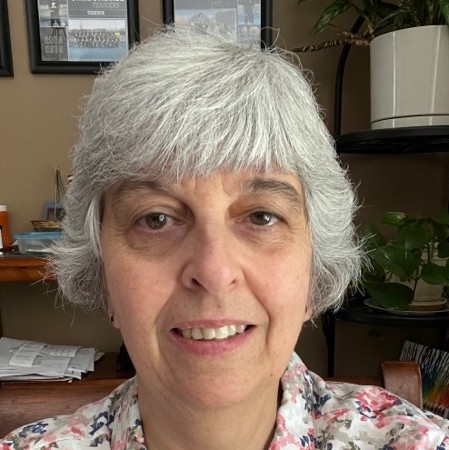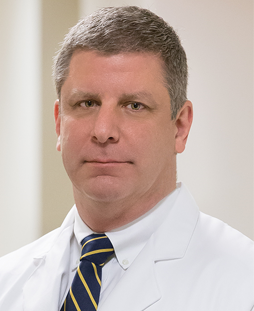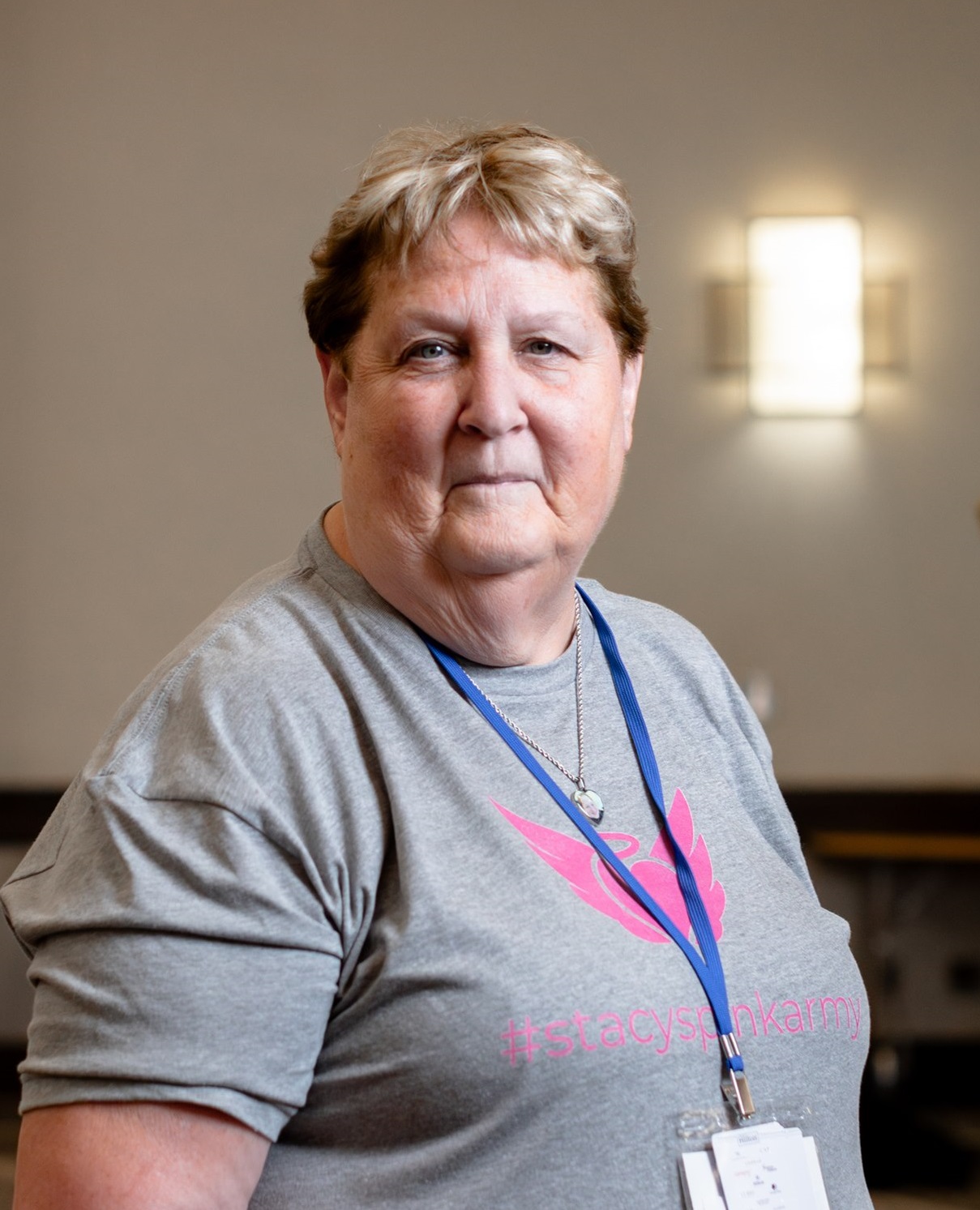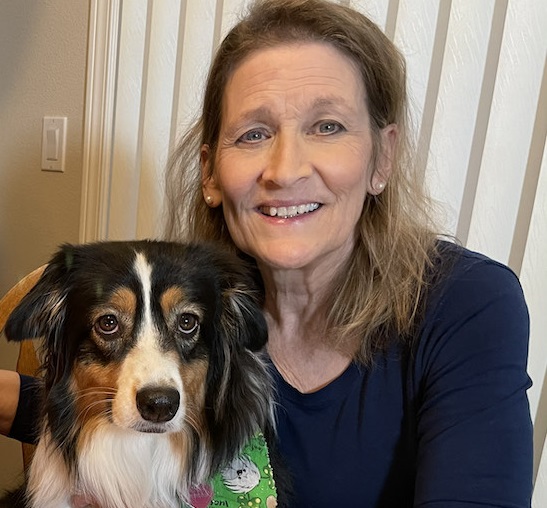Those in the ER are as Scared as Parents
Workshop Presentation from the 2010 SOFT Conference in Roanoke
Presented by: Dr. Kerry Powell – Emergency Room Physician
In introducing his workshop, Dr. Powell wrote, “almost every parent of a disabled child will at some time have to visit the Emergency Department. A few will be fortunate enough to visit Pediatric Emergency Departments attached to large teaching hospitals with experience of your child’s condition. The majority will, however, have to go to smaller hospitals and be cared for by terrified physicians unfamiliar with your child’s condition. I aim to talk about how you can make your (emergency room) visit go as smoothly as possible and get the best for your child.”
Dr. Powell facilitated a discussion of parents who know the realities of emergency room visits and gave tips to improve their satisfaction with their experience. He explained that meeting the needs of a child with a rare diagnosis such as trisomy 18 or trisomy 13 can be daunting, and he relies on parents to provide information about their child.
Well, I read about this syndrome
He explained that parents do not want a doctor who thinks, “well, I read about this syndrome twenty years ago, so I know all about it.” Parents want a doctor who admits what he does not know and takes the time to look up what is now known about the child’s syndrome. Even then, what is known may not match the reality of the child before him. What is best is when the doctor asks the parents questions and gathers the necessary information, or at least listens to the information the parent gives. The parent should politely educate the doctor.
We cannot yet rely on electronic records, and we may be ten years away from the time when they are reliable. He suggested that parents summarize the child’s complications and learn the correct medical language to add specificity. For instance, do not say “urinary tract infection” say “reflux.”
Parents shared unfortunate experiences with the common theme of the doctor not valuing what the parents knew. Dr Powell emphasized that a good emergency room doctor should listen to the parent who knows the child’s history, knows typical reactions and recognizes responses that indicate concern. Making a video tape of your child when he or she is healthy and showing it to the doctor is better than describing your child. It also helps to have a printed list of your child’s medication history, even if the list is lengthy. This helps the doctor understand what works, what the child is allergic to, and what medications the child is currently taking, in order to avoid interactions.
Trach or G-tube replacement
One common emergency room visit involves replacing a trach or G-tube. Since having the right size on hand at a small hospital might be a problem, parents are urged to have spares when they go to the emergency room. He suggested putting in a Foley catheter to keep the stoma open until the correct G tube can be inserted. He also suggested using anesthetic spray to make the procedure more comfortable for the child and easier for the physician. The person replacing the G-tube should inject 20 cc of contrast to make sure the placement is correct.
When parents were surprised about this, he emphasized the importance of checking even for parents who felt replacement was routine. Dr. Powell emphasized that parents not assume the G-tube is properly placed, no matter how often they do the procedure.
Having a spare trach tube that is the right size is also a good idea. The tube needs to be replaced within six hours if the stoma is to be kept open. The parent should decide what the issue is at the moment: to keep the stoma open or to help the child breathe. A smaller tube can be used in an emergency situation. He also suggested applying Emo cream 30 minutes before blood is to be taken to numb the area to make the child more comfortable with less squirming.
Be Polite, Humble and Insistent
Dr. Powell advised parents to be “polite, humble and insistent” in communicating what their children need. The opinions of the parents should be respected, because they know their children best. If the doctor is not cooperating appealing to an older nurse helps. He also suggested carrying the number of the child’s doctor and calling when at another hospital when traveling. A parent might also want to call a specialist at the hospital.
They must remember that most emergency rooms, even in an adult hospital, have physicians familiar with techniques that work with most children. However, there is no excuse for not communicating to the child’s own physician at the earliest opportunity. The attending doctor must act according to a legal standards, if there is an immediate threat to the life of the child; what must be done is what a reasonable person would do.
The doctor can supersede the wishes of the parent. For instance, a broken leg should be set. The parent has the right to go to another hospital, but a responsible physician would set up an arrangement at another hospital and have the patient transported there. The child should also be at the facility that can best provide the duration of care required. In an emergency, parents are advised during the middle of the night to go where they can and transfer during daylight hours, seeking first to reduce the child’s suffering and symptoms.
Be involved with on-going care
Dr. Powell also emphasized the importance of parents being involved with on-going care while the child is in the emergency room or admitted to the hospital during a medical crisis. If parents are told they cannot administer medications, the doctor can write an order stating that parents can give the medications. If the doctor is prescribing a generic drug, when that is not what the child has been taking, then the plan should be to stick with what the child has been taking and not make changes.
Nurses are busy in understaffed hospitals and may not give medications on time, so the parent can be on top of timing. The parent must also monitor all medications given, writing down what the child takes and when. The parent also checks to make sure the child gets the right medication and not what is intended for the child next door. Parent should know when to give new medications, not just TID. Doctors should realize that giving parents some control increases their satisfaction with the hospital experience. Also, parents are both experts in knowing their child and the ones to provide continuity of care. Parents should also insist on copies of records of treatment from the hospital visit. These should be added to the child’s file.
Bring your child’s Plan of Care
Suggestions given by the parents in attendance included keeping multiple copies of fact sheets, which include diagnoses, the child’s prior surgeries, medications, and on-going concerns. At a hospital visit, the parent should have multiple copies to distribute, rather than explaining. Giving a child glasses with a built in DVD can distract the child during procedures. Some parents told of experiences that were less than ideal with doctor’s overriding parent wishes and in one case administering medication that had previously had adverse effects. Insisting the doctor read previous paper work and involving long distance another doctor experienced with the child can change what is happening. Sometimes, a new doctor cannot reconcile what he knows of trisomy 18 with the child’s capabilities.
Dr. Powell empowered parents, helped them anticipate problems and guided them in being prepared for common procedures. Parents can help physicians find solutions to little and large medical concerns. Parents left hoping that if they need an emergency room visit for their child, they will be fortunate enough to encounter a physician who like Dr. Powell recognizes he has something to learn from the parents and makes the parents partners in the treatment plan. Although some of the parent experiences were frightening, other parents have felt in control when dealing with medical emergencies. Dr. Powell gave everyone the tools necessary to become good child advocates in a sometime imperfect medical system.
Dr. Kerry Powell is an emergency room physician at Carilion Clinic Emergency Services in Roanoke. He graduated from Leeds University Faculty Of Medicine (UK), did post graduate training at St. James Hospital in Leeds and did his residency in internal medicine at Bridgeport Hospital and Brooklyn Hospital Center. He taught at Johns Hopkins for five years.






















Recent Comments